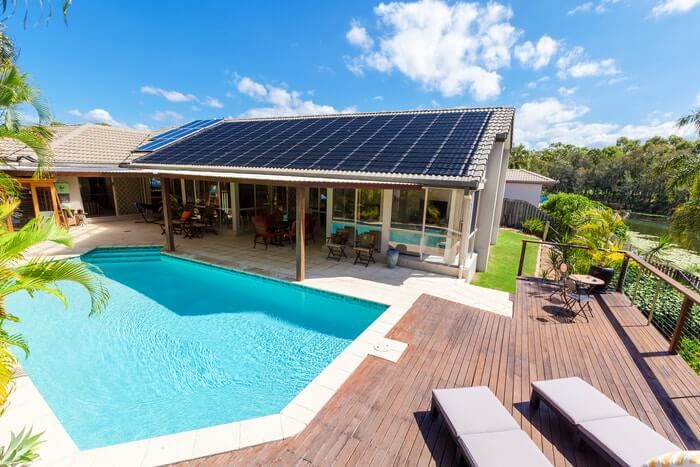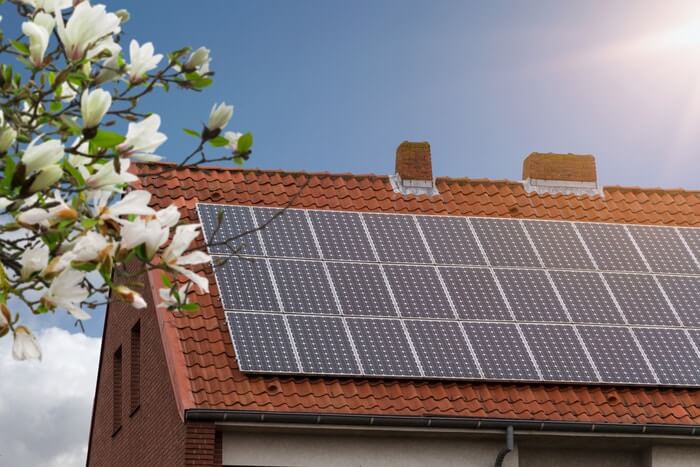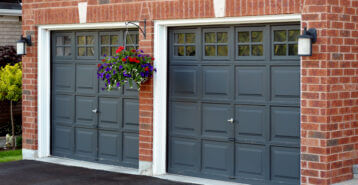Are you doing a solar project?
Modernize can pair you with three to four pros in your area, so you can compare options and save time and money.
First off: Congratulations. You have done the research, determined that solar paneling is a good choice for your home, and have chosen a solar contractor after sifting through three or four estimates. Now it’s time to plan out how you will be budgeting for your home improvement project. You will want to save on the initial investment and in the long term.
Just by searching online for payment options and educational materials, you’re on the right path and now you’re in the right place. A solar paneling installation is a costly, and worthy, investment—nothing and no one should push you to do anything you’re not completely comfortable with. When it comes to solar panel payment options, whether you do so in cash or through financing, you should understand your options and be comfortable with the path you choose. A trustworthy contractor will walk you through each step and be glad to explain anything you want clarification for, from the reasoning behind certain costs to the myriad financing options at your disposal.
Discussing the cost of and payment options for your project with your contractor is one of your most valuable venues to a successful solar panel installation, whether you take out a loan or sign a Power Purchasing Agreement. Use our guide to familiarize yourself with the solar panel installation financing universe and use it as a launching pad for conversations with your local contractor.
Solar Panel Payment: The (Solar) Ball Is In Your Court
You don’t have to feel like your contractor is doing you a favor. The cost of solar installation has dropped more than 70 percent since 2010, according to data from Solar Energy Industries Association. In response, therefore, contractors have stepped up their game to compete in an increasingly saturated arena. Further, it’s okay to expect the contractor to handle the bulk of the work in reducing costs before your solar installation project even begins—after all, one of their value propositions is expertise in the field and local knowledge about getting the most out of local, state, and federal rebates and incentives.
And in case you’re wondering: Yes, you should certainly negotiate. If you can pay a lump sum, your contractor might be open to giving you a discount. If you want to pay through a payment plan, your contractor might offer their own so you don’t have to go through a bank. And if you do need to go through a bank, be sure you first learn about all of the financial incentives available to you both directly and indirectly in the form of loans or tax credits. For example, the Residential Renewable Energy Tax Credit, which applies to up to 30 percent of your installation (that’s hard and soft costs combined), is phasing out its value over the next several years. By 2025, that 30-percent figure drops to 10 percent, according to the Solar Energy Industries Association.

Understand Your Home Equity and the Doors It Opens For You
Homeowners are often able to use their homes, whether mortgaged or not, as securities for loans to fund home improvement projects. Two common ways to leverage your home for credit from a bank or other financial institution include lines of credit and loans. If your budgeting puts these payment options on the table, run it by your solar installer. An experienced contractor will have both expert and valuable anecdotal advice regarding these methods.
Home Equity Line of Credit (HELOC)
A home equity line of credit, otherwise known as a HELOC, allows homeowners to borrow money against their home’s equity. HELOCs are generally flexible but limited by a home’s value, and they also carry the risk of foreclosure.
Home Equity Loan
In contrast to a HELOC, this loan allows a homeowner to borrow money against the value of a home over the amount of any or all mortgages levied against the property. Since the home itself is the security for the loan, it can result in large amounts of borrowed assets. For all intents and purposes, a home equity loan is a kind of second mortgage.
Whatever options you find suits you best, you may want to discuss it with your contractor. Their experience with other homeowners in the area and specifically as it pertains to solar panel installation projects will be very valuable in helping you determine the best path forward for your own financing.
Consider a Property Assessed Clean Energy (PACE) Loan
PACE programs are mechanisms by which private property owners —homeowners like you— can more easily finance energy-efficient and renewable energy improvements on their property and using private sources of income.
Find the Right Contractor for Your Solar Project
Whether you’re ready to begin your project now or need some expert advice, our network of contractors are here to help. With a few simple questions, we’ll find the best local professionals for you
According to the Department of Energy, you can pay for home energy-efficiency specific improvements—solar panel systems among them—without a large up-front cash payment. You will then repay for the improvement costs over a set time period just like with a loan over a decade or two pending your finances—as always, be sure to run through option like this with your contractor to get guidance about your best option here.
The loan is tied to your home, not you, which means you can sell it along with your home if that day ever comes. Interestingly, the added value your home will gain as a result of your solar panel installation incentivizes both you and a potential homebuyer in the future. Most importantly, perhaps, a PACE loan incentivizes you to charge ahead with a home improvement project like a solar panel installation without having to wait for the resulting savings to specifically show a return on your investment.

You Can Save With Solar Without Buying a Solar Panel System At All
As you consider your solar panel system options, you should be aware there are other paths to saving on your utility bills by powering your home with solar that don’t necessitate purchasing a solar energy system.
There are two basic ways to reap the benefits of solar panels without buying them, a solar lease and a Power Purchase Agreement. Discuss both with your reliable contractor to get an idea of how each applies to you and which might be based for you based on your needs, budget, and finances.
Lease A Solar Panel System
For some homeowners, it makes more sense to allow a third party to pay for their solar energy installation and then either pay to lease the system or purchase the energy generated from it from the owner at a reduced rate. When they lease solar panel systems, homeowners don’t own the solar energy system itself. That means they are not responsible for the system’s upkeep, maintenance, and usually installation. Instead, you would pay a lease to use the solar energy system in one form or another. Of course, the applicable tax credits and financial incentives available, like the one mentioned above, do not apply to a lessee. While there is less risk, there is also less reward in that sense.
On the much brighter side, however, leases are sometimes available for little-to-no money down, making them much more budget-friendly. The terms of a solar lease will depend on many variables, from the solar system itself in terms of its expected output and down to you, the homeowner, and what your needs are. Discussing cost-related parameters of your project with your solar installer will give you a great start in determining a solar lease is worth your efforts.
Sign a Power Purchasing Agreement
A power purchasing agreement, or PPA, is similar to a solar lease. Someone else pays to install a solar energy system on your home and assumes both the burden of maintenance and any tax credits associated with the system. However, instead of charging rent to use the system as in the lease model, the owner actually sells you the energy generated by your system at a greatly reduced rate.
PPAs are typically set for a certain term of time, usually somewhere between 10 and 25 years. After the agreement expires, the homeowner can choose to either extend the agreement, have the owner remove the system, or purchase the solar energy solar at a reduced rate. As with a PACE loan, the PPA is attached to the home, so if a homeowner chooses to sell their home, the new homeowner may take over the agreement.
Whichever direction you choose to fund your home improvement project, discussing costs and solar panel payment plans with your trustworthy solar installer will give you an intimate and specific foot up on saving the most both in the short term and the long.
Modernize’s content is intended for informational use only. We make no representations to the accuracy, completeness, correctness, suitability, or validity of any information on this site, and will not be liable for any errors, omissions, or delays in this information or any losses, injuries, or damages arising from its display or use. All information is provided on an as-is basis. It is the reader’s responsibility to verify their own facts. By using our website, you are accepting the practices described in this Privacy Policy. Please review our Terms of Service for more.
Find the Right Contractor for Your Solar Project
Whether you’re ready to begin your project now or need some expert advice, our network of contractors are here to help. With a few simple questions, we’ll find the best local professionals for you
Reviews from Real Homeowners
Welcome to Homeowner Resources! We are the Modernize blog. Modernize pairs more than 3 million homeowners a year with pre-vetted contractors in their area. This blog started because we believe homeowners should know everything about their homes, from how their HVAC works to which front door colors they might love. On Homeowner Resources, you can find information on every part of your home, right down to how you can negotiate with contractors to get the best price. Here's more about the blog.
Need a contractor? Learn more about how Modernize finds the right pro for you.



